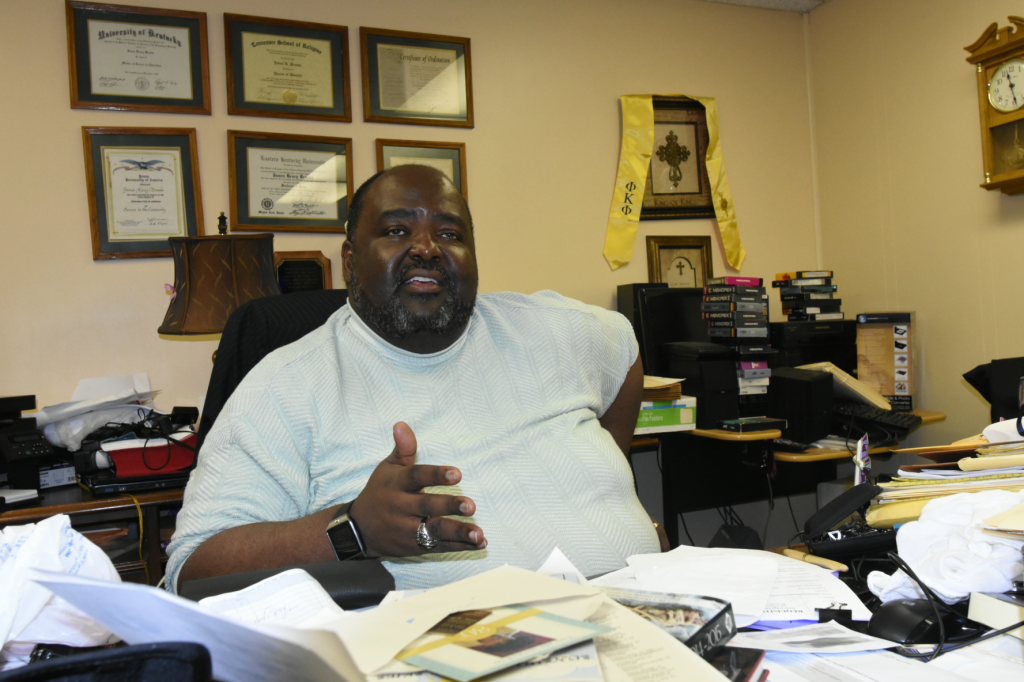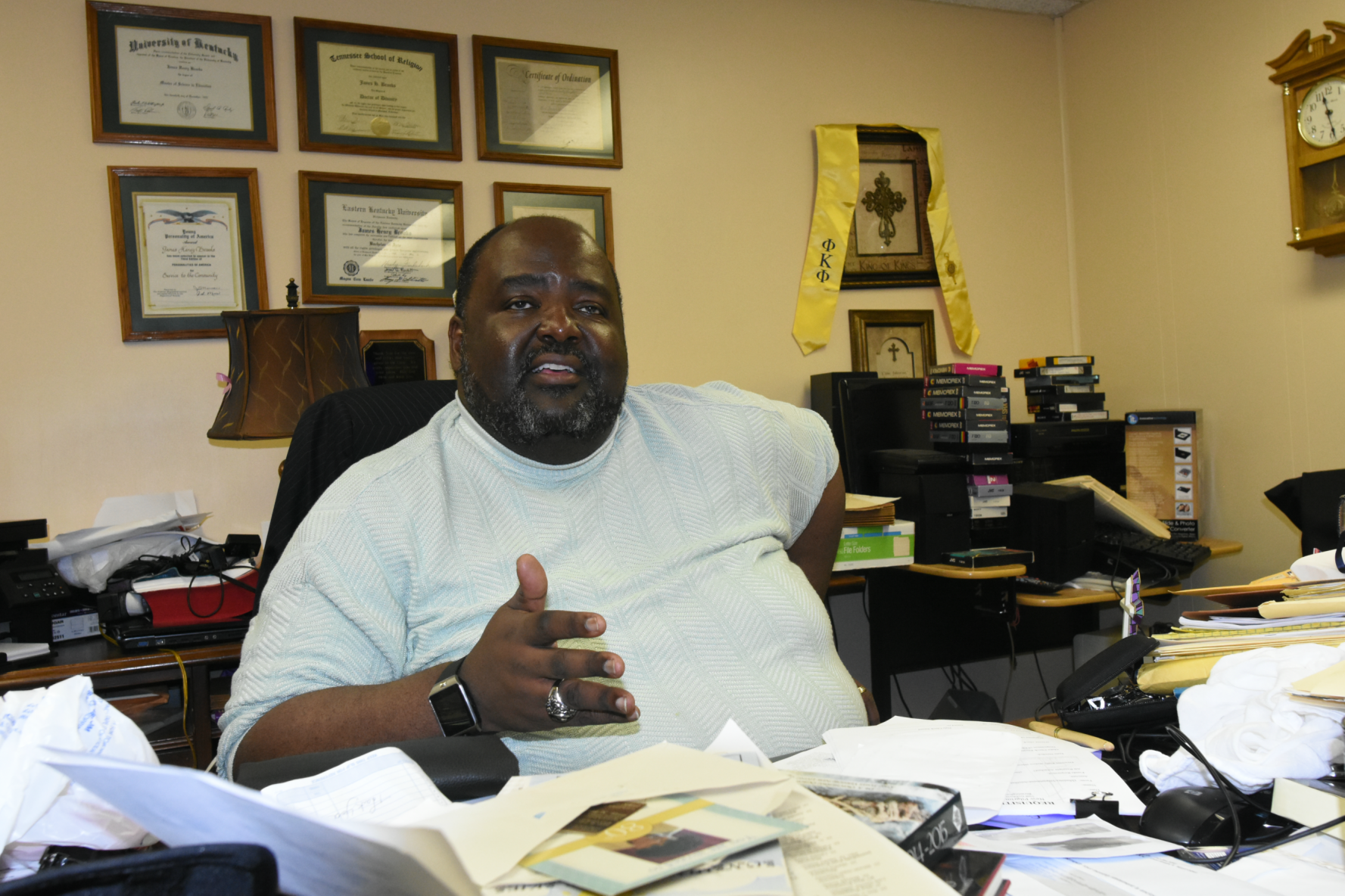By Barnett Wright
The Birmingham Times

The role of the church goes far beyond what happens on Sunday morning—and that role is expanding, given the challenges in today’s society, say a number of area pastors.
“The role of the church is being fulfilled in that it’s reaching the last, the least and the lost,” said Rev. James H. Brooks, pastor of New Pilgrim Baptist Church. “That’s the purpose Jesus left us on earth to do. He said, ‘As you’ve done unto the least of the brothers, you’ve done it unto me.’ Helping the poor is central to what the church is all about.”
Rev. Gregory Clarke, pastor of New Hope Baptist Church, said it’s important to “save anyone and everyone, anywhere and everywhere. We should be the engine of a community—definitely not the caboose.”
Rev. Michael W. Wesley Sr., senior pastor of Greater Shiloh Baptist Church, said the church can’t view itself as an isolated part of the community.
“That evangelistic call of ‘go ye therefore’ is what causes us to go out and be concerned about the least of these,” he said. “That’s the essence of religion. That’s the essence of real faith. Based upon how we respond to others is really what God judges the church on. Yes, we have a relationship upward to Him, but it’s outward to others. And when it goes outward, it has to be systemic, it has to be systematic.”
Saving and Serving
Area churches provide services in a number of areas because they believe it’s important to save and to serve.
“We fed people every Sunday until recent construction short-circuited our feeding ministry,” Brooks said. “A former pastor’s notion was that the church is indeed a place that goes beyond serving just spiritual food; it serves physical food, as well. The nobler, larger purpose of the church is not that meal, but it’s the feeding ministry to those that are homeless. We reach out and feed people that are less fortunate than we are.”
Brooks said some needs go beyond the spiritual.
“The 21st century church has got to meet those needs,” he said. “That’s why we have a community life center, a family life center, because we’re competing for the wholeness of our community.”
Meeting Community Needs
Wesley said his ministry offers a number of programs—financial: seminars from the Dave Ramsey Financial Peace University to help people live on budgets; educational: after-school programs, summer camps, and an early-childhood center; healthy living: a community garden and a health ministry that conducts weekly blood pressure checks.
Clarke said the church also has a responsibility for the area where it resides. That means providing housing units for independent living, a senior-citizen recreation center for activities, a pantry that gives away food, a program to deal with any type of addiction, and a prison ministry.
“We try to have a ministry that has an impact not just on the spiritual needs but on the other needs people may have—emotional, physical, financial—for the entire community,” he said.
The slogan at Clarke’s church has always been the same: “Where ministry matches the message.”
“The message must go forth, but we want to back that up by providing ministry in a lot of different areas, among a lot of different age groups,” he said.
Something in Common
Brooks said it’s important to provide hope, guidance, and the sense that all people share something in common as part of the human family. That, he said, can be adequately addressed only when people understand the very spiritual nature of life.
“Only when we get that kind of spiritual connection together can we reach out and be the church meeting people’s needs,” Brooks said. “I think that’s the church: helping people understand there is a nature about humanity that is larger than we are ourselves—and only God can fulfill us in meeting that kind of need.”
Correspondent Solomon Crenshaw Jr. contributed to this article.





